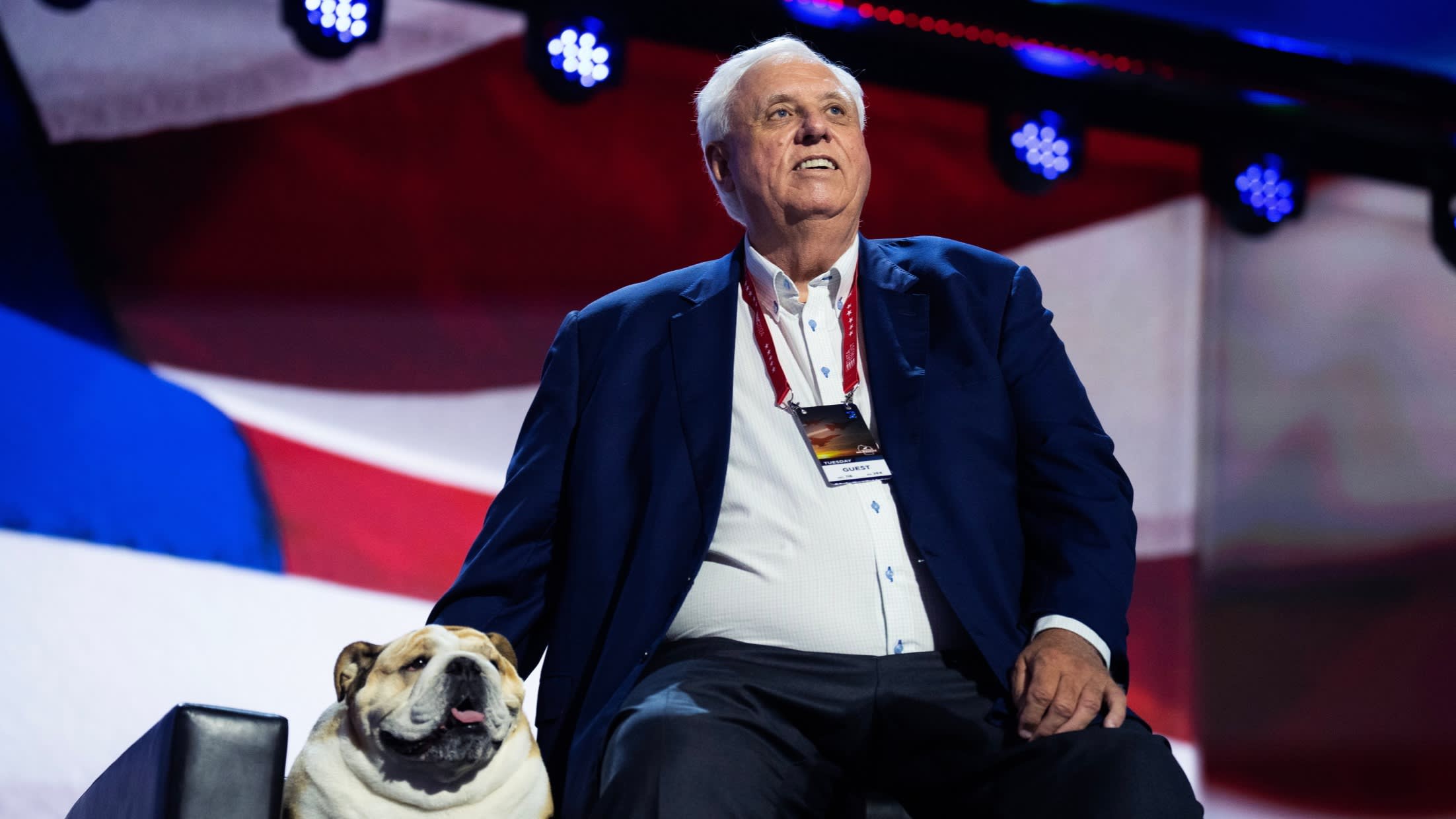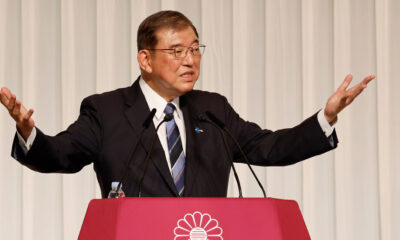This is an audio transcript of the Working It podcast episode: ‘How to be a kind manager — without being a pushover’
[MUSIC PLAYING]
Graham Allcott
Kindness and empathy build trust. Trust builds psychological safety. And when you have psychological safety in organisations, you have better productivity, you have better innovation, creativity. It just leads to better results. And there’s an awful lot of research out there that backs up the argument.
Isabel Berwick
Hello and welcome to Working It from the Financial Times, I’m Isabel Berwick.
[MUSIC PLAYING]
When we think of business leaders or senior managers, kindness probably isn’t the first trait that comes to mind. We think of leaders as strong and determined people who make tough decisions. But does kindness have a place in leadership? My guests today think so. In fact, they think it can help employees to do their best work. Bonnie Hayden Cheng is an associate professor of management at the Hong Kong University Business School and author of books, including The Return on Kindness. Bonnie, hello.
Bonnie Hayden Cheng
Thank you. It’s a pleasure to be here. I’m thrilled to have this conversation about kindness.
Isabel Berwick
Graham Allcott is the founder of Think Productive, which offers productivity training to organisations. He’s also the author of six books, including the recent KIND: The quiet power of kindness at work. Graham, hello.
Graham Allcott
Hello. Great to be here.
Isabel Berwick
Let’s get started. I’m gonna start off by asking you both, you know, you’ve both written books about the importance of kindness in the workplace. And I wanted to ask you both, what brought you to do that? Was there a lightbulb moment or was it a gradual realisation? Graham, I’m gonna go to you first.
Graham Allcott
OK. Well, the lightbulb moment for the book was I was doing a keynote and at the end of the keynote there was a Q&A question, which was basically, what outside of what you’ve really talked about has been the secret to your success in business? And I said kindness fuels everything. If you’re kind, you’ll win. It’s as simple as that. And it turned into this kind of pitched battle in the room between most people being on my side, which was Team Kind, and then some people being on the other side, which was basically Team Screw-them-all-and-be-evil. And it just ignited this incredible debate in the room. And it made me realise that not everyone thinks about kindness the way I think about it. And it just felt like there was a really big story to tell as a result of that. So the book really came out of that one moment in a keynote where I was throwing this curveball of a question. And it could have felt like it was a bad day at the office, but actually it turned into something pretty wonderful.
Isabel Berwick
And you described kindness to me, Bonnie, when I met you in Hong Kong, as a leadership superpower. It’s counterintuitive for many people. How far do you think the idea has penetrated? That kindness isn’t just being nice, it can actually get you ahead.
Bonnie Hayden Cheng
Yeah. I mean, I think the biggest misperception, you know, when we think about kind leadership is that a kind leader is a weak leader. A kind leader doesn’t drive results, that they’re ineffective. And the implication of that would be that this is an undesired leadership approach for those who are wishing to project dominance and strength. You can see how kind leadership is seen as kind of soft or weak, and you get that kind of pushback against it.
Isabel Berwick
Graham, you’ve already mentioned that, you know, half this audience was quite angry about the idea of kindness in leadership. What’s your most persuasive argument that might get them to change their minds?
Graham Allcott
So in my book, I talk a lot about the various different ways that kindness will lead to getting results. So the broad hypothesis is that kindness and empathy build trust. Trust builds psychological safety. And when you have psychological safety in organisations, you have better retention levels, you have better productivity, you have better critical thinking. So you avert crises more often and more regularly. You have better innovation, creativity. All these things that psychological safety brings really come back to how do we relate to each other as people. And where kindness and empathy can really drive that trust and drive that psychological safety, it just leads to better results. And there’s an awful lot of research out there that backs up that argument.
Isabel Berwick
Can you tell me how kindness shows itself in the workplace? How does it differ from niceness?
Bonnie Hayden Cheng
Leading from nice is a leader who’s caught up in people-pleasing behaviours. These are the people who favour the majority because they don’t want to hurt people’s feelings. They want to be everyone’s friend. That’s damaging, right? Because nice leaders don’t make the tough decisions that’s needed to get the job done. Nice leaders don’t hold tough conversations with their people because they want to keep the peace. So it’s leading from nice that’s ineffective.
In the book, I define kind leadership as taking intentional action in service to and for the betterment of the people in your care. It’s about connecting with people human to human, right? But it’s more than that because kindness is really a worldview. It’s a way of engaging with the world that encompasses our core values around empathy and compassion and humility and generosity. And because kindness is manifested in action, I think encouragingly, the implication of this is that it’s something that leaders can develop, that they can practice and train.
Graham Allcott
Just building on what Bonnie said there. So for me, nice is telling people what they want to hear, and kind is telling people what they need to hear. So really central to how we should lead with kindness is thinking about kindness as being about truth and grace. So you know, that can look like so many different things in so many different environments.
You know, if you just think in a bog-standard meeting, either face to face around a table or on a Zoom, taking a few minutes at the beginning of that meeting for everybody to check in and to say something as part of the meeting, as perhaps part of an opening round, before you get into the meat of the discussion means that if anybody in the room needs to raise something difficult, they’ve already spoken and they’ve already warmed up and they’re already part of that room.
You know, really it boils down to just making sure that you are on the side of the people that you’re working with, you’re thinking about their needs and you’re able to communicate that stuff really effectively.
Isabel Berwick
Is that the kind of thing you do in your organisation, Graham? Could you give us some examples of how you lead with kindness?
Graham Allcott
Yeah, so all of that really. So things like making sure there’s an opening round at the beginning. We were having some quite difficult strategic discussions and someone brought a big pot of little toy giraffes. And the idea was every time someone sticks their neck out, we reward them for that. So then they get given this tiny little giraffe to put next to their desk. And it really just turned the tables.
So rather than thinking every time you say something that is a bit risky, it’s almost like seeing it as a badge of honour, like this person has stuck their neck out far more than everybody else. That’s a really great thing. So just those simple little cultural things that we do and often on its own, any of those things are quite unremarkable. But what they add up to is the idea that everybody feels valued, everyone is able to contribute, and then everybody is able to give the right kind of information without shirking that responsibility to do that.
Isabel Berwick
Bonnie, if you work in an organisation where leaders don’t prioritise kindness, what can you do as an individual manager?
Bonnie Hayden Cheng
I think there are certain strategies and practices that you can enforce for your own team, but kindness has to be something that’s enforced top-down. You really need to create this culture of kindness, and it’s really through intentionality, right? There’s this four-step process for doing this, and essentially it starts by making kindness a core company value. So as an organisation, hold company-wide discussions around how kindness might reflect core company value. How can we work through specific behaviours that’s representative of what your company considers to be kind and also by extension, unkind?
And then it’s about actioning kindness, which means hiring for kindness, rewarding for kindness, and even not rewarding, right, unkind behaviours, even if they’re a top performer, because a kind culture should be protected at all costs. And then the beauty of having, you know, developed a kind work culture is that you’ve essentially set a foundation where you can still be tough on your standards, right? Because when you set clear expectations and you clearly communicate goals, and you’ve empowered your people and everyone’s aligned and working towards common objectives, then you can step back and trust people to take ownership of the work and get the job done.
And so this clarity actually streamlines work processes and minimises miscommunication, right? And then you’ve actually freed up your time to be a people leader because you’re right there with them providing resources, feedback and supporting the team in whatever they need to perform at a high level.
Isabel Berwick
It sounds to me as though this kind of framework would allow leaders to identify underperformers more easily than in perhaps a harsh culture.
Bonnie Hayden Cheng
Yeah, absolutely. And you know, when I do a lot of work with companies, they’re asking me, you know, does kindness mean you let the underperformer go? And I think that’s the wrong kind of thinking, right? The kindness is the action that you would take to hold the tough conversation and address the poor performance directly, because ignoring it is not doing anyone any favours. And in fact, you’re causing the rest of the team to quickly become disgruntled.
So it’s really that distinction again between the nice leader and the kind leader. It’s the nice leader who would, you know, let that kind of behaviour go because they don’t want to have the tough conversation.
Isabel Berwick
Yeah. Graham, have you got any tips for how we can implement kindness where teams are dysfunctional or underperforming?
Graham Allcott
Yeah, we have to really kind of think about the individual parts of companies. So you can think about culture, but also you can have personal mantras, you can have a culture within your smaller team. I’ve seen a lot of leaders really create incredible worlds of culture and kindness that are actually quite separate from the larger organisation, but there’s a team mission statement or there’s some kind of personal mantra that just kind of holds together what they’re trying to do.
Isabel Berwick
So a kind of a kindness microclimate.
Graham Allcott
Yeah, that’s a good way of describing it.
Isabel Berwick
I like it. So it strikes me from listening to you both and correct me if I’m wrong, I’m interested to challenge you a bit on this. I’ve done a lot of work or heard a lot about enormously expensive wellness programs that companies are spending billions on and most of them just don’t work.
Could kindness be a substitute for that? If it makes people more productive and more engaged and happier, why are we bothering with wellness?
Bonnie Hayden Cheng
Well, I mean, I don’t think it’s one or the other, right? So kindness doesn’t replace wellness programs, but kindness does underscore the recognition that whatever we do have in place is maybe not working, right? It’s the awareness that, you know, a wellness program cannot simply be fragmented sessions of, you know, holding a pizza party here or a yoga session there. It has to be a holistic approach that’s taken by top leadership and fully integrated into business strategy. And for that, it takes a kind leader to involve their people in the design of a wellness program that is, by definition, servicing the people.
Isabel Berwick
Graham, have you thought about wellness and kindness together?
Graham Allcott
Yes. So I have a funny relationship with wellness programs in that I wrote a book called How to Be a Productivity Ninja before and got asked to go and speak at a lot of wellness days the companies were holding, where what I would see a lot of is there’s yoga smoothies and a healthy lunch and then it’s back to work in exactly the same culture the next day.
When we think about wellness days, we often think about them as a bit of sticking plaster. Really, what we need to do is really challenge the culture more generally and try and implement wellness across the organisation rather than just on a wellness programme or a wellness day.
And so for me, you know, if you think about a kind act, makes the giver have 23 per cent less cortisol in their brain just by being kind, so if you promote the idea of kindness challenges or asking people on your team to be kind to other people on your team, you are nearly a quarter lowering their stress levels just in doing that.
So when we think about it in that way, it does for me feel like wellness programs are a very expensive way of solving the same thing that we can solve through kindness and actually just treating our people better.
Isabel Berwick
Yeah. Bonnie, what was the most surprising thing about kindness that you’ve discovered?
Bonnie Hayden Cheng
Well, I interviewed global leaders from various industries representing different sectors, and I’ve interviewed leaders in the financial services sector, which for me was kind of the stress test of kindness, because, you know, here is this industry that is by and large focused on profits more than people or purpose. And so when you interview leaders who are kind leaders in this kind of industry, they absolutely get pushback around, you know, why are you wasting your time with kindness? And for them, it causes them to actually buckle down on being a kind leader because it makes them stick out in a positive way.
Isabel Berwick
So kindness can be your USP. Graham, what surprised you? You’ve only just written your book, haven’t you?
Graham Allcott
Well, I think the thing that surprised me is just the DMs and the messages that I’ve had from so many people saying this is articulating and crystallising stuff that I’ve just felt in my gut for a long time. So I think there are actually a lot of people out there who are consciously or unconsciously already part of Team Kind.
And so for me, that’s been really encouraging actually, in that obviously there are gonna be cynics, obviously there are gonna be people who will take the opposite view. But I do think, you know, there is a really kind of burgeoning kind of thirst for a more human-centred approach to how we work.
Isabel Berwick
Yeah. And I wondered if you could both tell the listeners about an example from your own lives or your work when you used your kindness skills and it worked. Or maybe a time when you were unenlightened and it didn’t work. Bonnie, would you like to go first?
Bonnie Hayden Cheng
Maybe a general observation from my many examples in my work, is, you know, the phrase killing them with kindness gets you so much further than the alternative. You get so much further by making emotional payments than you will by meeting people in their anger or when they’re not at their best.
And this is true in conflict situations. It’s true in a negotiation context. It’s true in everyday interpersonal interactions. And of course, there’s a balance there, right? You can be firm and hold your ground and set boundaries for yourself while still being kind.
Isabel Berwick
Graham, how about you?
Graham Allcott
When I think about the times when I’ve been less kind, it’s definitely for me where I am under stress and busyness. If you really choose kindness when you don’t have time and when there’s a lot of stress going on, they’re the difficult moments to be kind, but they’re also the moments where an act of kindness is really gonna be more memorable and it’s gonna really matter the most to that person.
So when you start to see stress around you, when you start to see a lot of pain around you, is that’s the time to really dial up the kindness rather than say, hey, we’re busy, let’s tone it down.
Isabel Berwick
And I wanted to finish by asking a question that I’ve always struggled with, which is, how can we practice kindness towards colleagues, or team members if we’re a manager, who we really don’t like? Perhaps we have a sort of visceral dislike of them. Perhaps they are politically opposed to us. Bonnie, do you have any tips?
Bonnie Hayden Cheng
I think we can always be professional, right? Respectful and cordial regardless of our personal feelings. As a manager, you know, all eyes are on you, right? And so you really need to think about role-modelling and leading by example and really about setting a good example for the team who’s going to be adopting similar behaviours and attitudes towards this person.
Isabel Berwick
Yeah. Graham, how would you advise people to deal with people they really don’t like or are politically opposed to?
Graham Allcott
Well, I think one thing that is really important is listening. So there’s a lovely quote from the actor Alan Alda, who says, great listening is about the idea that someone can change you. And when you’re prepared to let someone change you, it’s far more effective than a pair of duelling monologues.
You know, one thing I’d just really say to anyone listening to this is just really think about that day-to-day listening at work and how you relate to people, and there are probably things that you’re doing today that you can do better tomorrow and you know, things that you can really improve upon because it’s just one of those things that we do all the time.
[MUSIC PLAYING]
Isabel Berwick
Bonnie and Graham, thank you so much.
Bonnie Hayden Cheng
Thank you so much. This has been a real pleasure.
Graham Allcott
Really enjoyed it. Thanks, everybody.
[MUSIC PLAYING]
Isabel Berwick
This episode of Working It was produced by Mischa Frankl-Duval and mixed by Simon Panayi. The executive producer was Manuela Saragosa, and Cheryl Brumley is the FT’s global head of audio. Thanks for listening.
[MUSIC PLAYING]



















































































































































































You must be logged in to post a comment Login